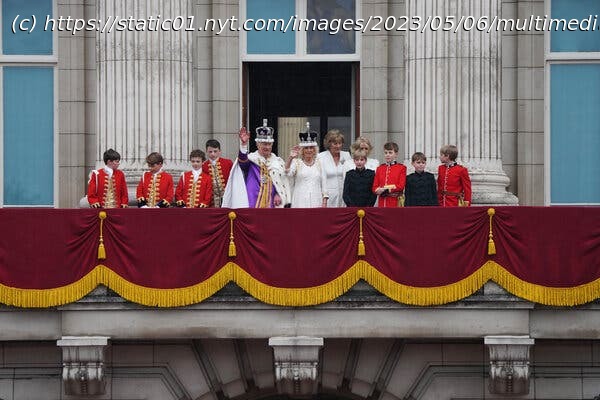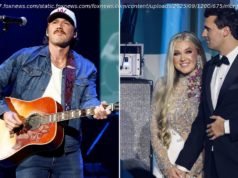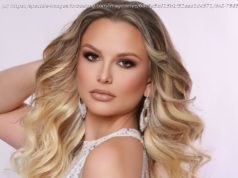The coronation, the first since Queen Elizabeth II’s in 1953, was a royal spectacle of the kind that only Britain still stages.
Anointed with holy oil and enthroned on St. Edward’s chair, King Charles III was crowned on Saturday in a solemn ritual that stretches back more than a millennium but unfolded with multiple concessions to the modern age.
The coronation, the first since Queen Elizabeth II’s in 1953, was a royal spectacle of the kind that only Britain still stages: four hours of pageantry that began with the clip-clop of horses’ hooves on Pall Mall and ended with the vaporous trails of acrobatic jets streaking above Buckingham Palace, as Charles watched from the balcony with Queen Camilla, who had been crowned shortly after him.
Yet this was a coronation for a radically different country than when Elizabeth first wore the crown. Jewish, Muslim, Hindu, Buddhist, and Sikh leaders greeted Charles as he left Westminster Abbey, and there were various attempts — not always successful — to make a medieval ritual more inclusive and democratic.
Female bishops from the Church of England took part in the liturgy; hymns were sung in Welsh, Scottish and Irish Gaelic; and when Charles, 74, took a sacred oath to defend the Protestant faith, he also offered a personal prayer, in which he promised to be a pluralistic monarch for a diverse society.
“I come not to be served, but to serve,” said Charles, moving gingerly in a velvet and gold lace robe first worn by his grandfather, George VI. “Grant that I may be a blessing to all thy children, of every faith and belief.”
At the invitation of the archbishop of Canterbury, the Most Rev. Justin Welby, who presided over the service, the congregation chanted, “God save King Charles,” their voices echoing in the abbey’s vaulted nave.
Among those in the audience of 2,200 were heads of state, including President Emmanuel Macron of France; entertainment figures like the singer Lionel Richie; and the first lady of the United States, Jill Biden, though not President Biden, who posted his congratulations to Charles on Twitter from the White House.
Outside, thousands of spectators lined the streets under a steady drizzle. There was little of the excitement that has electrified crowds after royal weddings or the sadness that suffused mourners during the queen’s funeral in September. But there was a collective sense of history in the making, and even a tingle or two as the newly crowned king and queen passed in their gold stagecoach.
History, of course, had been made already: Charles ascended to the throne upon the death of the queen. But the coronation sanctifies a monarch’s rule and, through a national celebration, aims to bind the sovereign to the people.
If Elizabeth’s coronation was one of the world’s first mass-media events, its black-and-white images transmitted globally by the BBC, this was the first coronation of the digital age, shared by spectators on Instagram, TikTok, Twitter and Facebook.
“I am just intrigued,” said Zoë Boyce, 24, as she waited on a blanket in a park with a friend, Sarah Chappell, 23. Ms. Boyce insisted she was “not a big fan” of the monarchy, but said, “I think you can appreciate it without supporting it.”
“It’s just a day in history isn’t it?” Ms. Chappell added.
There were discordant notes. Hours before the service began, the police arrested the head of Britain’s most prominent republican movement, Graham Smith, and others who had planned to protest in Trafalgar Square, along the procession route.






